For many, the evidence is in: Donald Trump wants to be an autocrat. If you haven’t read an op-ed or heard a radio, TV, or podcast commentator make that case, it’s probably because you’ve tried hard to avoid doing so. It would require virtually never watching cable news, including pro-Trump outlets, because there are few things Fox News and its imitators love more than running clips of MSNBC hosts and other “resistance” types, not to mention Democratic politicians, melting down over Trump’s “war on democracy,” “authoritarian power grabs,” etc.
Move further to the right, and you’ll find populists who want Trump to be an autocrat. They use terms like “Red Caesarism” or “neomonarchism,” while others pine for an American Pinochet or Francisco Franco or compare Trump to biblical figures like the Persian King Cyrus or ancient Israel’s King David. I can’t really blame anyone for taking these pathetic Bonapartists at their word.
In fairness, Trump recently said, “I’m not a dictator.” Though he did add that as president he can do “whatever I want.” I know it’s a lot to ask, but let’s put aside the question of whether Trump actually wants to be a dictator.
There’s a lesser charge that is much easier to prove. Trump very much wants people to talk about him like he’s a dictator. Whether it’s cosplaying, trolling, or something more sinister, his posturing is a surefire way to guarantee that people will talk about him and his strength because his detractors and defenders alike cannot resist it.
For instance, consider Trump’s executive order “banning” flag burning. Friendly media covered it as an authentic ban, and so did hostile media. The Associated Press headline blared, “Trump moves to ban flag burning despite Supreme Court ruling that Constitution allows it.” Fans cheered sticking it to the hippies, foes fretted about yet another violation of the Constitution by executive fiat.
But if you actually read the executive order, it’s not a ban. It’s almost entirely vaporous twaddle. It flatly says that the DOJ should prosecute flag burning to “the maximum extent permitted by the Constitution” and state laws. It doesn’t criminalize flag burning because the president can’t do that.
The order has several possible purposes. Trump hopes friends and foes alike will believe he’s banned flag burning when he hasn’t. Strength! I suspect he also hopes this will goad protesters into burning the flag, giving him a greater political pretext to use the National Guard to crush the longhairs.
Last week, a federal court—rightly—ruled that Trump exceeded his authority to levy some of his sweeping tariffs. In response, Trump claimed that, “If allowed to stand, this Decision would literally destroy the United States of America,” and “our military would be instantly obliterated.”
This is obvious nonsense. But if Trump believed it, there’s a very easy remedy at his disposal. He could simply ask the unprecedentedly pliant and obsequious Republican-controlled Congress to impose the tariffs he wants, thus saving the country from total destruction. For the same reason the court vacated his tariffs—that power belongs to Congress—the justices would undoubtedly uphold them if Congress ratified them.
But Trump’s shown no interest in doing that. Why? Because then they wouldn’t be his tariffs anymore. Asking Congress for permission looks weak. It underscores the bedrock constitutional principle that American presidents aren’t autocrats, a principle he doesn’t want to seem beholden to.
Politically (and characterologically), this preference for the appearance of strength is perhaps Trump’s greatest weakness, because it prevents him from actually having a much longer-lasting impact. All of the executive orders—some good, some not—that his superfans think demonstrate his strength and dominance have a shelf-life that ends with the next president. If he truly wanted to lay the foundation for a new “golden age,” he’d be pestering Speaker Mike Johnson to put them all on the law books. But that would come at the price of looking weak in his mind.
Trump’s power grabs are not as unprecedented as his amen corner or his chorus of Cassandras believe. FDR and Woodrow Wilson declared war on constitutional and democratic “norms” arguably as often as Trump did. Nixon was no piker either.
But what does make Trump different is his desire to brag about it. Traditionally, presidents seek to assure the public they are careful stewards of their constitutional oath.
Even if I’m right, none of this settles the issue of where all of this is heading. One of the consequences of pretending to be something is that, after a while, you’ll come to believe it yourself. Worse, a lot of Americans might decide they desire the fiction to become fact.
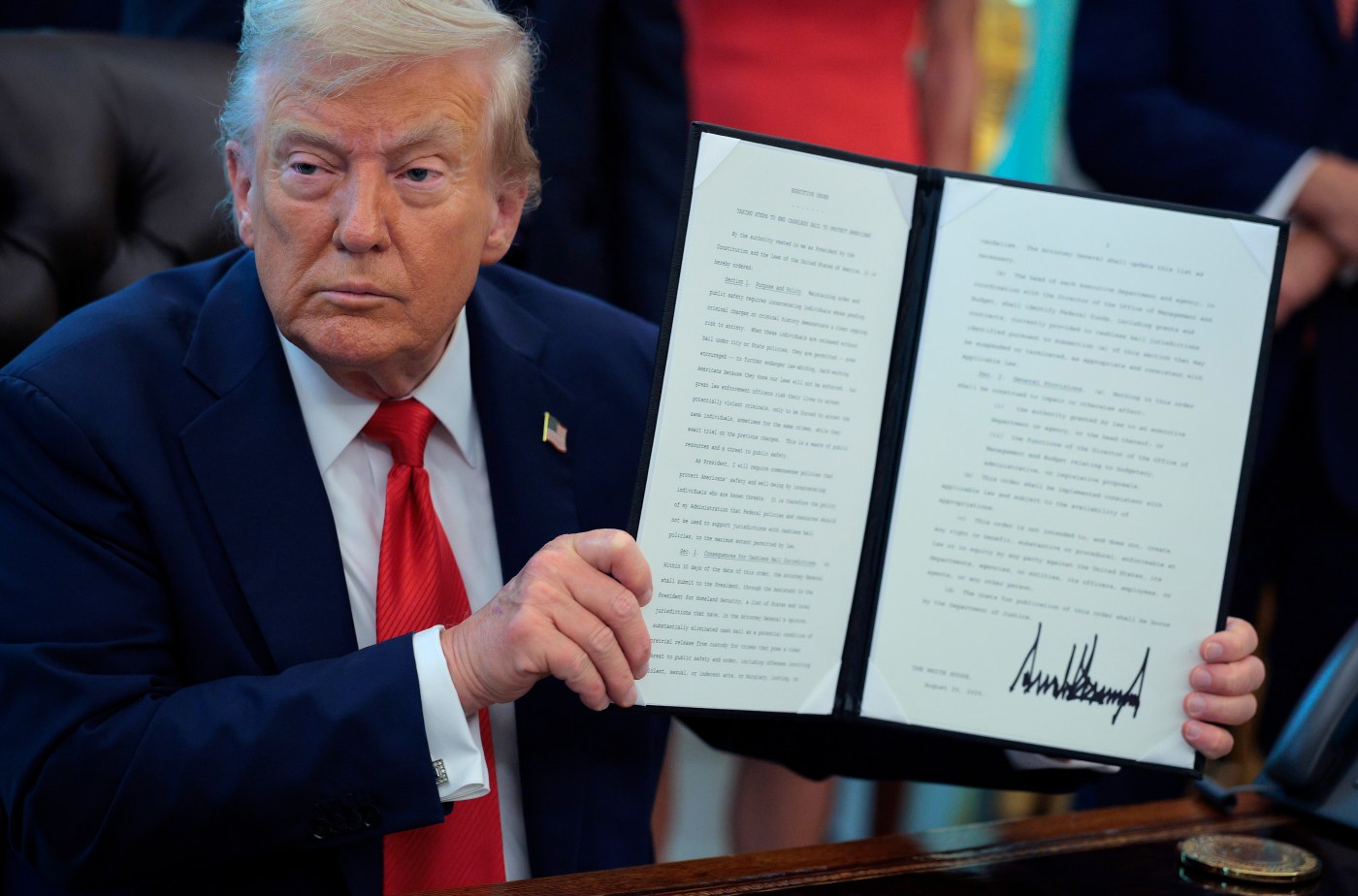


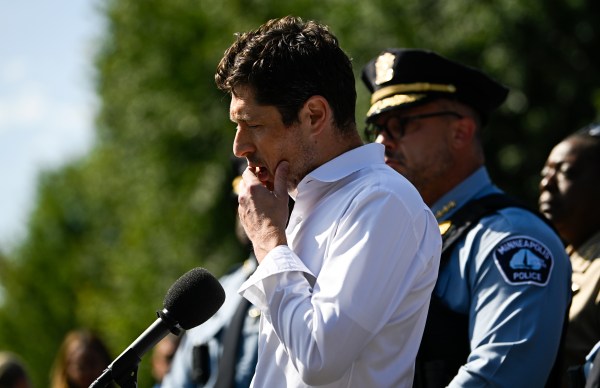
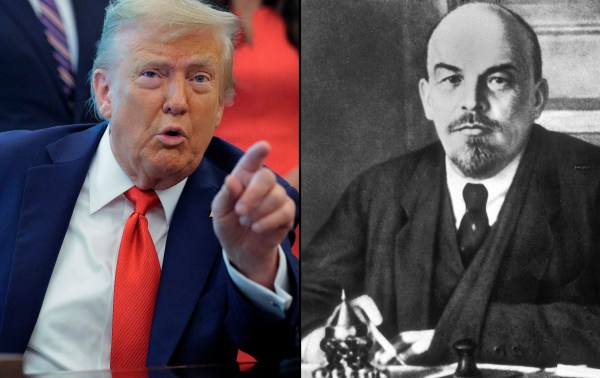
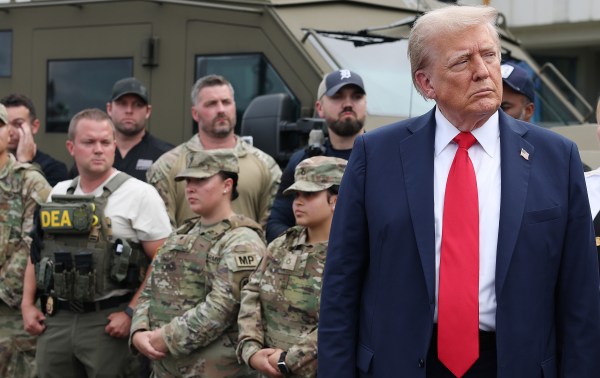
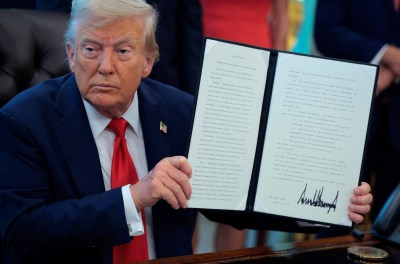
Please note that we at The Dispatch hold ourselves, our work, and our commenters to a higher standard than other places on the internet. We welcome comments that foster genuine debate or discussion—including comments critical of us or our work—but responses that include ad hominem attacks on fellow Dispatch members or are intended to stoke fear and anger may be moderated.
With your membership, you only have the ability to comment on The Morning Dispatch articles. Consider upgrading to join the conversation everywhere.